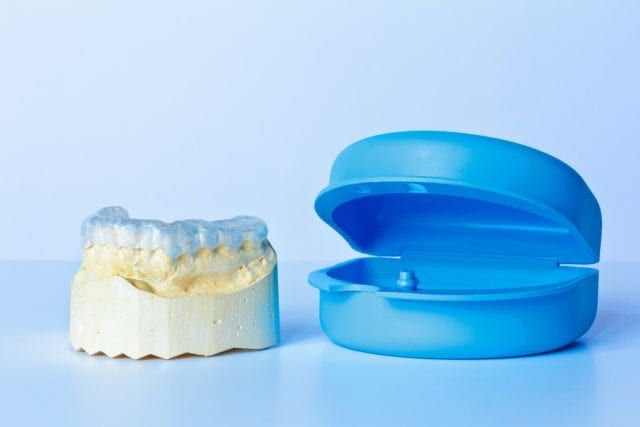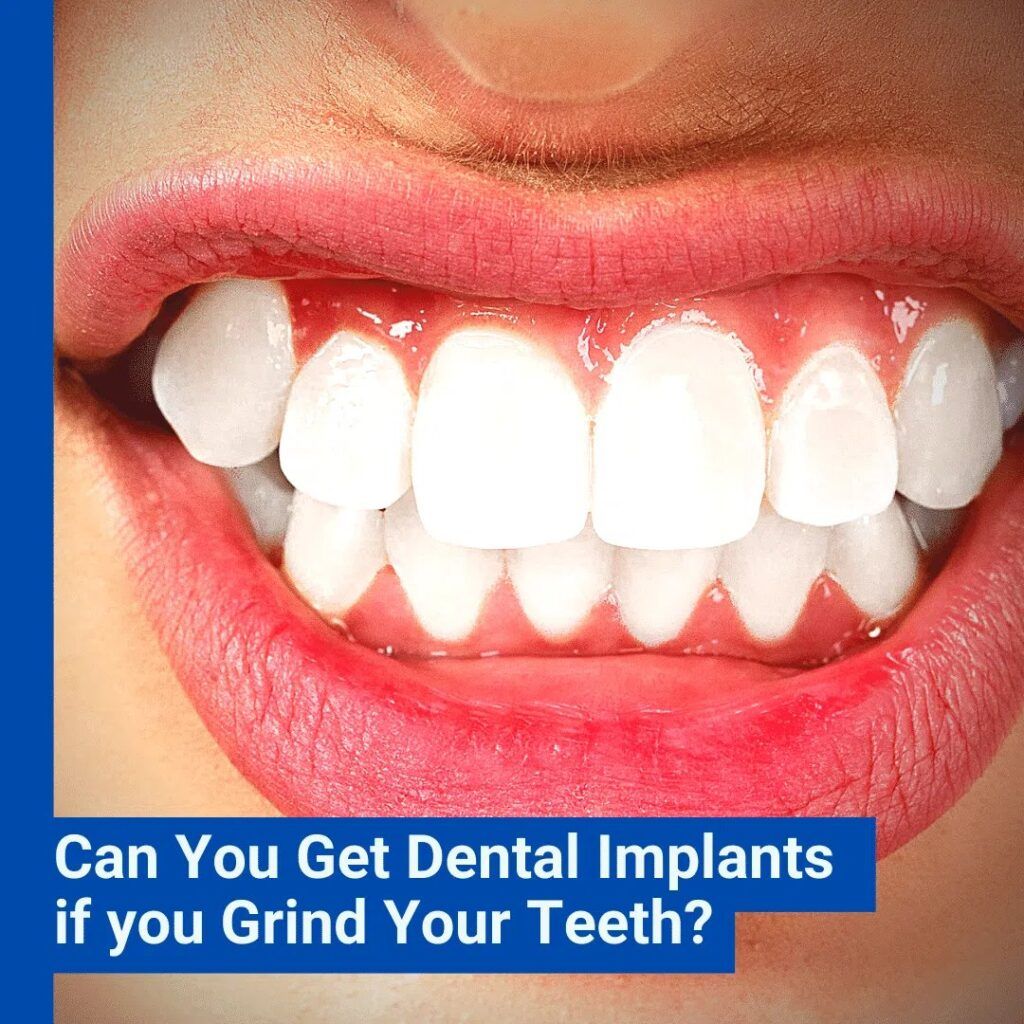Have you been considering dental implants, but are concerned that you may not be an ideal candidate due to bruxism? While you may think that grinding your teeth automatically eliminates you from being able to get dental implants, this is not always the case. However getting dental implants when you grind your teeth does have its own set of considerations. In order to understand what considerations should be made as a bruxer getting dental implants, we must first take a look at what bruxism is and how it can potentially affect dental implant placement.

In the simplest sense, bruxism is a dental term used to describe the behavior of forcefully moving one’s teeth in a sideways motion against each other (grinding) or forcefully squeezing the top teeth against the bottom teeth (clenching). In most cases, a combination of these behaviors tends to occur unconsciously at night while you sleep. Although you may not be aware that you grind or clench your teeth at night, you may wake up with headaches or may not feel fully rested.
Since bruxism occurs at night while sleeping, many people are unaware of the behavior and may blame their morning headaches and lack of restful sleep on other causes. In fact, the majority of bruxism cases are diagnosed during routine dental appointments when your dentist notices enamel wear consistent with teeth grinding or clenching. You may even be diagnosed with bruxism when your implant dentist examines your teeth during a dental implant consultation.
Now that we have a better understanding of what bruxism is, we need to evaluate just how it can affect dental implant placement. For starters, severe bruxism can increase the risk of implant failure since it exerts additional pressure on newly placed dental implants. In order for dental implants to heal properly, they must fuse with the surrounding bone in a process known as osseointegration. Applying too much pressure to an implant before it has fused in place can cause the implant to shift or become loose, ultimately causing implant failure.
Therefore, if your implant dentist determines that you grind or clench your teeth, additional steps may be needed to place dental implants successfully. In most cases, this means taking steps to reduce the amount of potential damage done by bruxism. In some cases of severe bruxism, this can also mean postponing dental implant treatment until your bruxism is under control.

Bruxism is believed to be brought on by stress, so treatment options generally deal with identifying the source of your stress, as well as reducing or managing your stress levels in order to reduce symptoms. Additionally, treating bruxism also entails protecting the teeth and reducing the amount of pressure exerted on the jaw joint. Treatment based on protection is an essential part of preventing implant failure.
To protect your teeth from premature enamel wear, fractures, or chipping, and your jaw from temporomandibular joint disorder (TMD), most dentists will prescribe a dental night guard. Dental night guards are custom fabricated to fit over the top or bottom arch of teeth. Their structure not only protects your teeth, but it also helps to reposition the jaw in order to discourage bruxism. Wearing a nightguard after dental implant surgery will also protect your dental implant as it heals, since it minimizes the amount of forceful pressure being exerted on your implant.
While stress management and nightguards can generally be used in people who grind their teeth and want dental implants, it is still important to discuss your bruxism habit with your implant dentist to determine if this approach will work for you. This is because some case of bruxism are more severe than others and a range of considerations may be needed before having dental implants placed. To find out how to get dental implants if you grind your teeth, you will want to be sure to schedule a consultation with an experienced dental implant dentist who has performed dental implant surgery on bruxers before.

